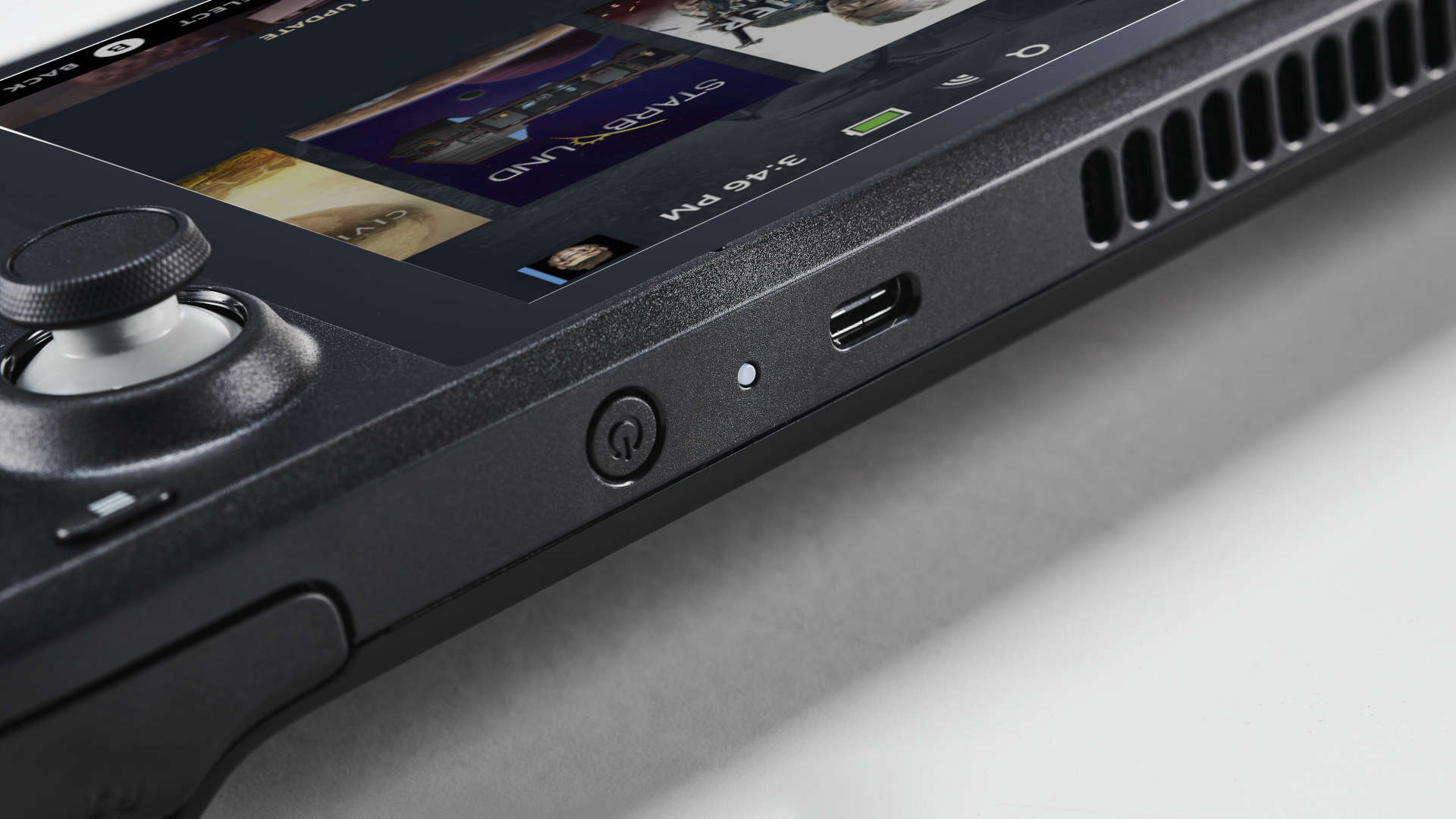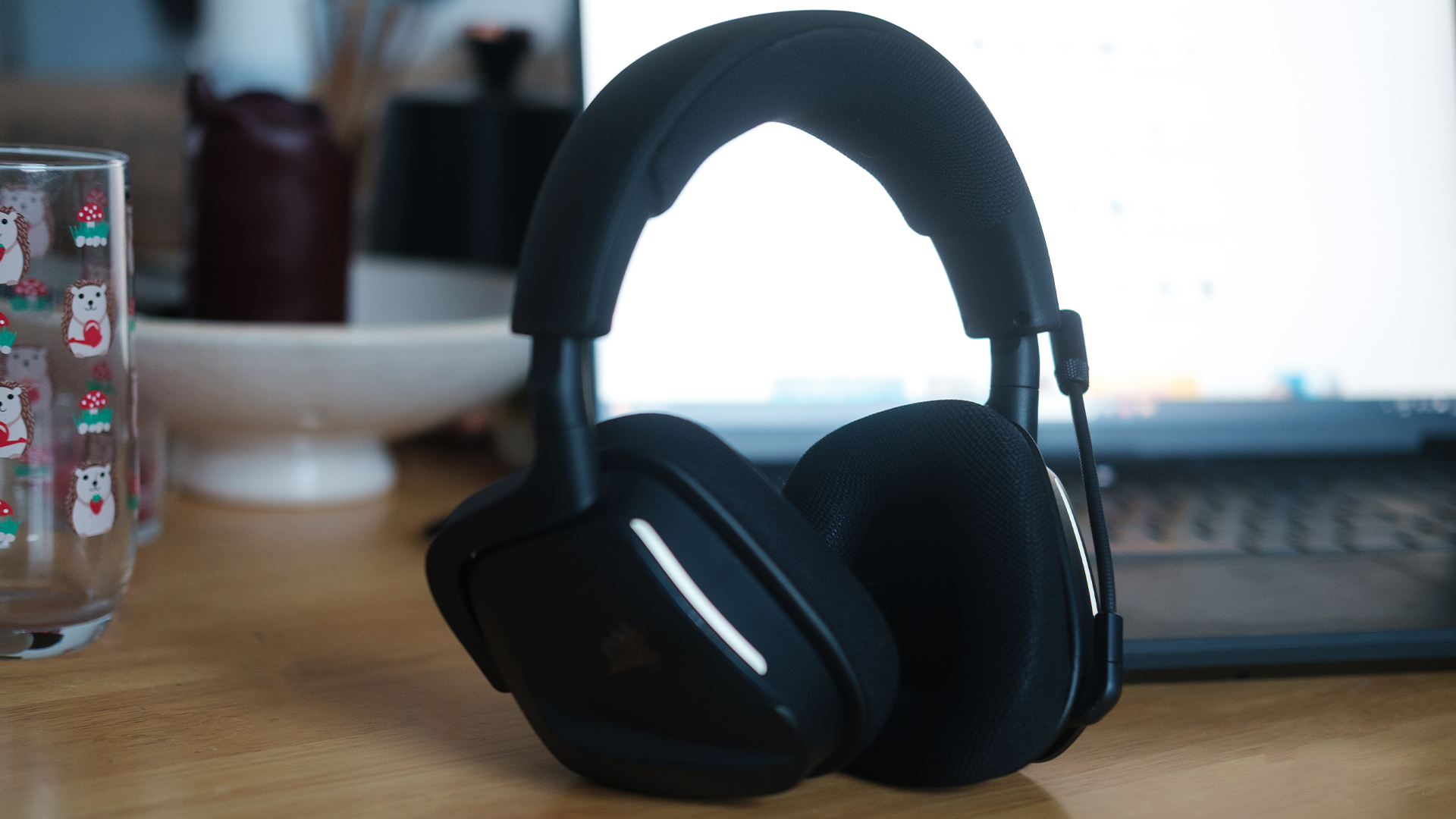How loud is the Steam Deck?
With a tiny cooling fan, and a slimline chassis, the Deck is certainly chatty.

The Steam Deck is loud in the same way that any gaming laptop is loud. Okay, maybe in a different way to how an old Asus or MSI gaming laptop might be loud, with aggressive angles and retina-searing displays of RGB illumination, but the Deck is still certainly no acoustic wallflower.
If you've ever experienced a gaming laptop running a demanding title at full chat you'll recognise the turbine whine coming from the top of the Steam Deck. And 'chat' is actually a pretty good term to use when talking about the volume of noise emanating from the device, because our testing shows it popping up in the same decibel bracket as a quiet office or a normal conversation.
In other words, the same overall noise level as a couple people having a chat.
When we're talking about how loud the Steam Deck is, it probably helps to explain what we actually mean. We're not describing the volume the two impressive speakers on the front of the Deck. It's all about the noise the device's cooling system makes when it's chilling that AMD Aerith APU.
The powerful custom silicon has a max TDP of just 15W, which means it doesn't need a huge amount of cooling to keep it chill. It's also comfortable running at a pretty high temperature for much of its up time, too, thanks to that AMD Zen 2/RDNA 2 combo.
But it does need some cooling, and the tight confines of the Deck's chassis means that solitary cooling fan has to be small, and small fans have to spin fast to provide any kind of chip chilling capability.

The fact that it's still only hitting a 56dB average in our testing is pretty decent, and that doesn't actually sound too bad when it comes to the overall volume. For what it's worth, I measured the volume using a simple application on my phone, in the quietest, most sound dampened room in my home. Because I am all about the scientific method, obvs.
The biggest gaming news, reviews and hardware deals
Keep up to date with the most important stories and the best deals, as picked by the PC Gamer team.
I took my measurements from the same distance above the screen, and not in the direct path of the top exhaust because then you'd just be getting the sound of the hot air hitting the mic.
A 56dB average came from one of the most demanding games I've played on the Deck: Forza Horizon 5. That's a game where even the 30 fps limit doesn't do a whole lot of good for the device's battery life.
I also tested The Witcher 3 because bathtub Geralt demands it. Running at the Deck's standard 60 fps limit—it runs with V-Sync on no matter what the in-game settings might be—we measured a 53dB average. But Valve has been updating the fan curve during my pre-release testing of the device, and with the 30 fps limit toggle enabled, not only did I see 116% improvement in battery life, but the volume dipped to a 43dB average.
That's apparently either the volume of light rain or bird song. Tweet, tweet.

But volume isn't the most important thing about noise; pitch is also a key component, and when we talk about whine the Steam Deck most definitely has it. The high pitch of the fan tone means that it becomes rather intrusive, whether you're downloading a game sat on the SteamUI, actually playing a game, or simply sat next to someone who is.
Yeah, the Deck failed what I call the Significant Other Test. Sat on the sofa, competing with the loud aphorisms of Captain Lee from my TV set, I could just about get away with gaming on the device. But there's no way I'd be getting in any night-time OlliOlli World in bed next to my partner. That's not a euphemism, by the way.
The combination of the pitch and the whine means the Deck's fan is just too pronounced to be happily ignored. Even when I was gaming on my own I found I had to boost the volume of the speakers because they too are competing with the chat from the exhaust port.
Thankfully, this is a mobile device, and designed to be used out and about. On transport the already high ambient sound levels means the Deck isn't going to make you a pariah in the quiet carriage of a train, and won't make a dent in the overall roar of commercial passenger flights. So it at least passes our Public Embarrassment Test.
But ever was it thus with mobile PC gaming. We'd always recommend picking up the best gaming headset to pair with your new gaming laptop, and I'm going to suggest the same is true for the Steam Deck. Grab a pair of low latency Bluetooth buds to be able to enjoy game audio in comfort, you'll thank me.

Dave has been gaming since the days of Zaxxon and Lady Bug on the Colecovision, and code books for the Commodore Vic 20 (Death Race 2000!). He built his first gaming PC at the tender age of 16, and finally finished bug-fixing the Cyrix-based system around a year later. When he dropped it out of the window. He first started writing for Official PlayStation Magazine and Xbox World many decades ago, then moved onto PC Format full-time, then PC Gamer, TechRadar, and T3 among others. Now he's back, writing about the nightmarish graphics card market, CPUs with more cores than sense, gaming laptops hotter than the sun, and SSDs more capacious than a Cybertruck.

